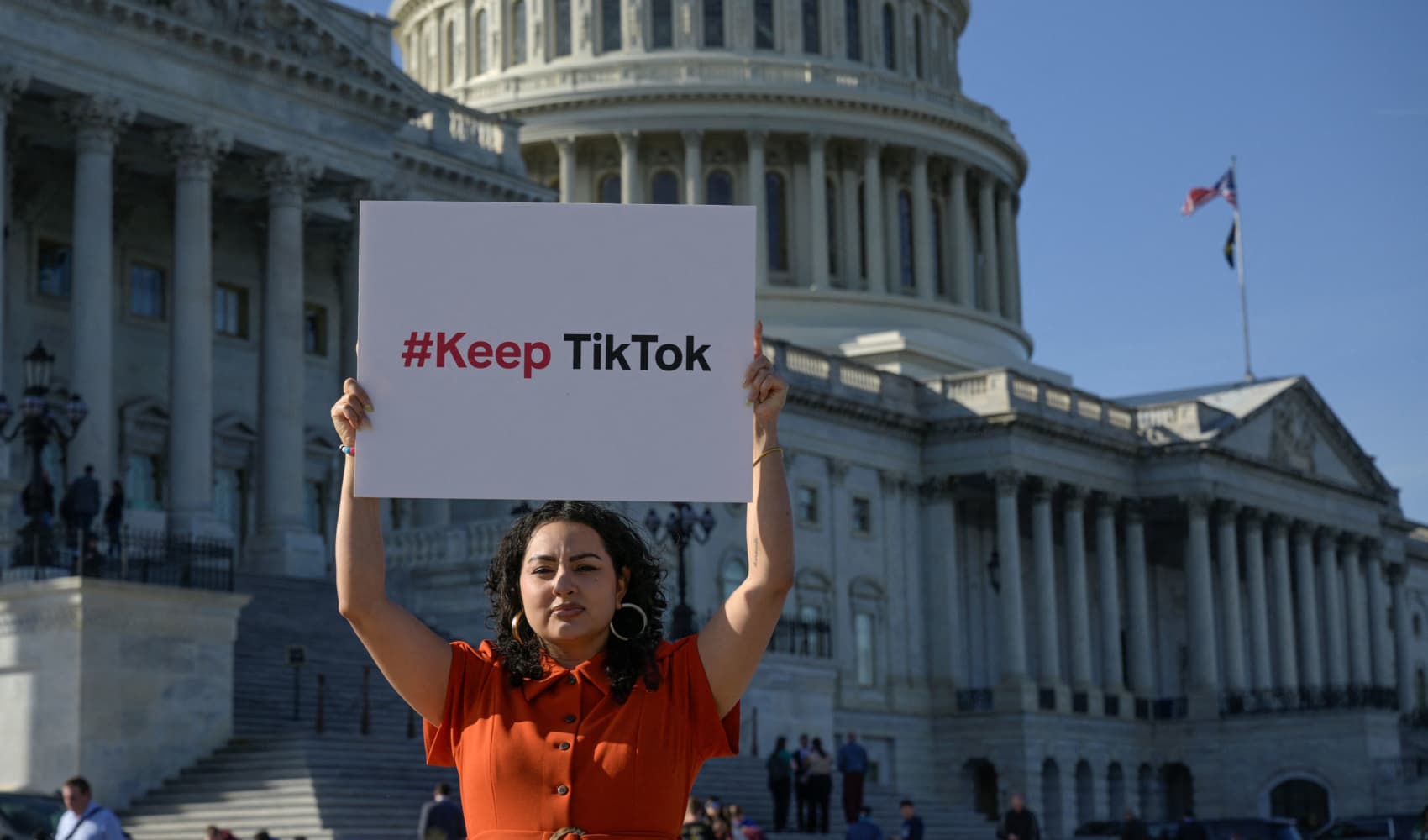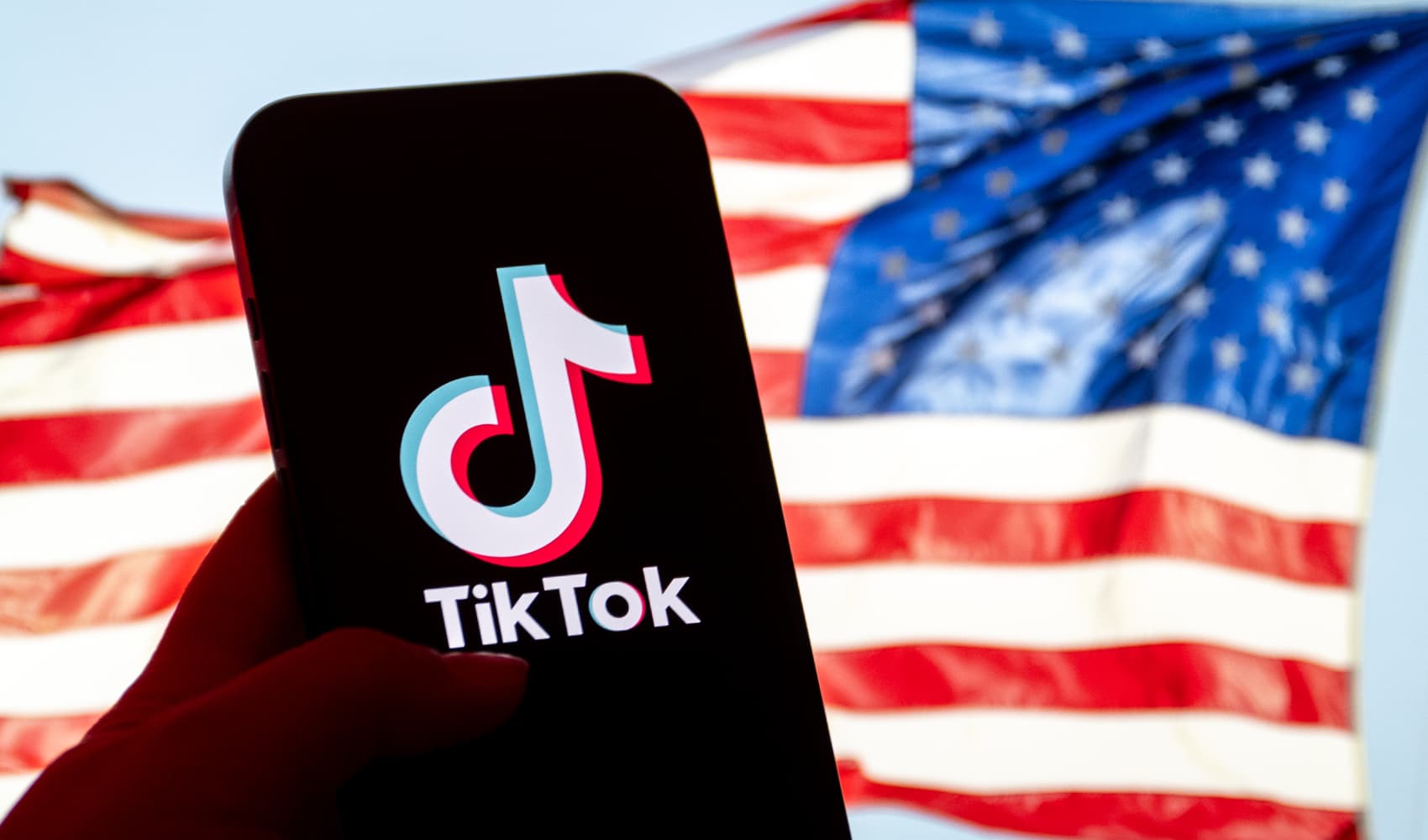The House passed legislation Saturday that would ban TikTok in the United States if the popular social media platform’s China-based owner doesn’t sell its stake within a year, but don’t expect the app to go away anytime soon.
The decision by House Republicans to include TikTok as part of a larger foreign aid package, a priority for President Joe Biden with broad congressional support for Ukraine and Israel, fast-tracked the ban after an earlier version had stalled in the Senate. A standalone bill with a shorter, six-month selling deadline passed the House in March by an overwhelming bipartisan vote as both Democrats and Republicans voiced national security concerns about the app’s owner, the Chinese technology firm ByteDance Ltd.
The modified measure, passed by a 360-58 vote, now goes to the Senate after negotiations that lengthened the timeline for the company to sell to nine months, with a possible additional three months if a sale is in progress.
Legal challenges could extend that timeline even further. The company has indicated that it would likely go to court to try and block the law if it passes, arguing it would deprive the app’s millions of users of their First Amendment rights.
TikTok has lobbied hard against the legislation, pushing the app’s 170 million U.S. users — many of whom are young — to call Congress and voice opposition. But the ferocity of the pushback angered lawmakers on Capitol Hill, where there is broad concern about Chinese threats to the U.S. and where few members use the platform themselves.
“We will not stop fighting and advocating for you,” TikTok CEO Shou Zi Chew said in a video that was posted on the platform last month and directed toward the app’s users. “We will continue to do all we can, including exercising our legal rights, to protect this amazing platform that we have built with you.”
The bill’s quick path through Congress is extraordinary because it targets one company and because Congress has taken a hands-off approach to tech regulation for decades. Lawmakers had failed to act despite efforts to protect children online, safeguard users’ privacy and make companies more liable for content posted on their platforms, among other measures. But the TikTok ban reflects widespread concerns from lawmakers about China.
Members of both parties, along with intelligence officials, have worried that Chinese authorities could force ByteDance to hand over American user data or direct the company to suppress or boost TikTok content favorable to its interests. TikTok has denied assertions that it could be used as a tool of the Chinese government and has said it has not shared U.S. user data with Chinese authorities.
The U.S. government has not publicly provided evidence that shows TikTok shared U.S. user data with the Chinese government or tinkered with the company’s popular algorithm, which influences what Americans see.
The company has good reason to think a legal challenge could be successful, having seen some success in previous legal fights over its operations in the U.S.. In November, a federal judge blocked a Montana law that would ban TikTok use across the state after the company and five content creators who use the platform sued.
In 2020, federal courts blocked an executive order issued by then-President Donald Trump to ban TikTok after the company sued on the grounds that the order violated free speech and due process rights. His administration brokered a deal that would have had U.S. corporations Oracle and Walmart take a large stake in TikTok. The sale never went through for a number of reasons; one was China, which imposed stricter export controls on its technology providers.
Dozens of states and the federal government have put in place TikTok bans on government devices. Texas’ ban was challenged last year by The Knight First Amendment Institute at Columbia University, which argued in a lawsuit that the policy was impeding academic freedom because it extended to public universities. In December, a federal judge ruled in favor of the state.
Organizations such as the American Civil Liberties Union have backed the app. “Congress cannot take away the rights of over 170 million Americans who use TikTok to express themselves, engage in political advocacy, and access information from around the world,” said Jenna Leventoff, a lawyer for the group.
Since mid-March, TikTok has spent $5 million on TV ads opposing the legislation, according to AdImpact, an advertising tracking firm. The ads have included a range of content creators, including a nun, extolling the positive impacts of the platform on their lives and arguing a ban would trample on the First Amendment. The company has also encouraged its users to contact Congress, and some lawmakers have received profanity-laced calls.
“It is unfortunate that the House of Representatives is using the cover of important foreign and humanitarian assistance to once again jam through a ban bill that would trample the free speech rights of 170 million Americans, devastate 7 million businesses, and shutter a platform that contributes $24 billion to the U.S. economy, annually,” said Alex Haurek, a spokesman for the company.
California Rep. Ro Khanna, a Democrat, voted against the legislation. He said he thinks there could have been less restrictive ways to go after the company that wouldn’t result in a total ban or threaten free speech.
“I think it’s not going to be well received,” Khanna said. “It’s a sign of the Beltway being out of touch with where voters are.”
Nadya Okamoto, a content creator who has roughly 4 million followers on TikTok, said she has been having conversations with other creators who are experiencing “so much anger and anxiety” about the bill and how it’s going to impact their lives. The 26-year-old, whose company “August” sells menstrual products and is known for her advocacy around destigmatizing menstrual periods, makes most of her income from TikTok.
“This is going to have real repercussions,” she said.
___



0 Comments